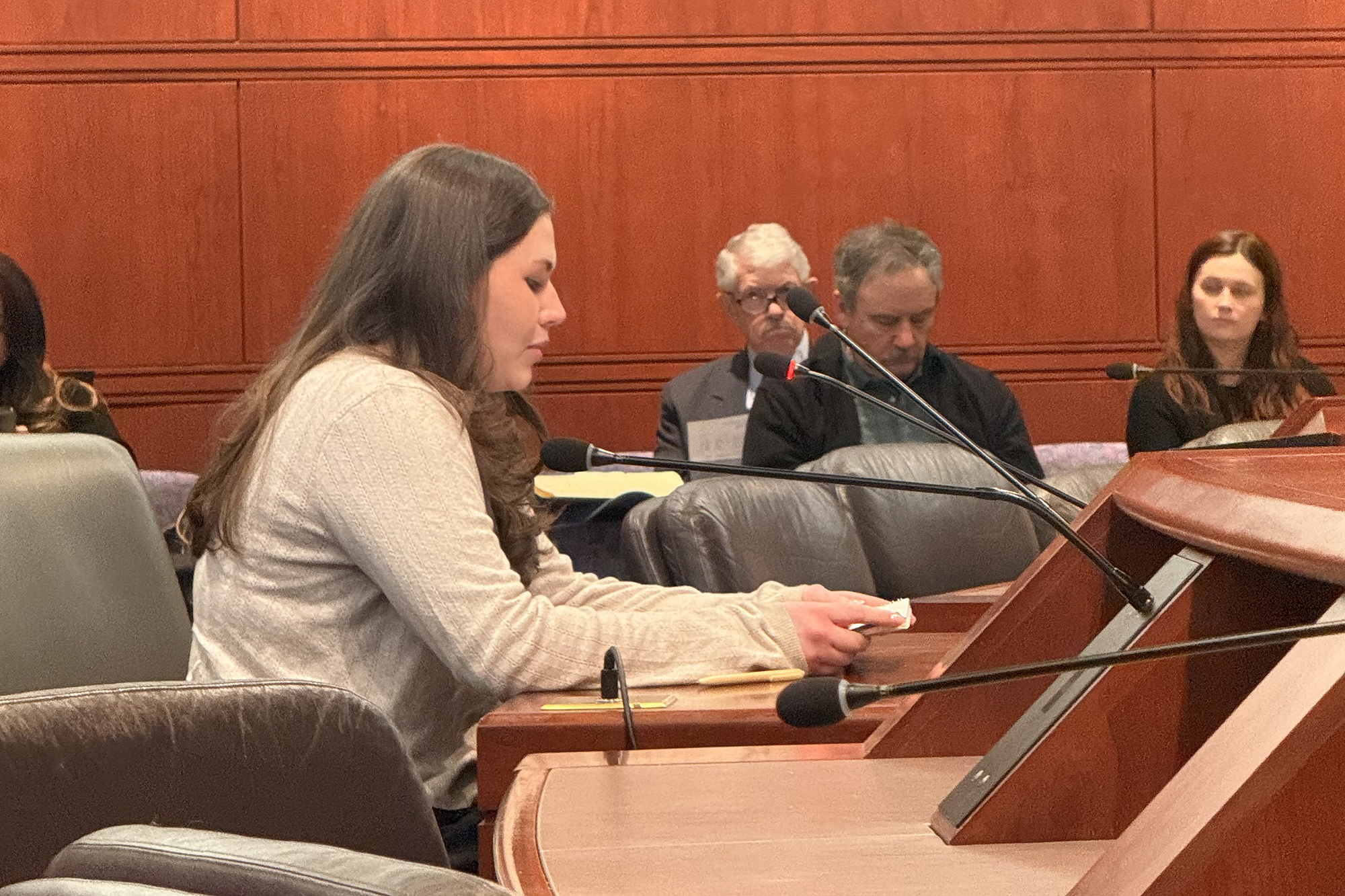Nearly 30 new faculty members will join the College of Liberal Arts and Sciences (CLAS) this academic year. Their research interests range from territorial rights of Native populations to using artificial intelligence to understand geographic climate patterns.
Get to know these stellar scholars and educators.
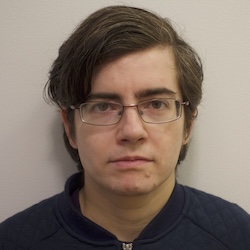 Rebecca Bellovin joins the Department of Mathematics as an assistant professor. Bellovin received her doctorate from Stanford University and spent a year at the Institute for Advanced Study. Her research is in algebraic number theory, with interests in the study of Galois representations and non-Archimedean geometry.
Rebecca Bellovin joins the Department of Mathematics as an assistant professor. Bellovin received her doctorate from Stanford University and spent a year at the Institute for Advanced Study. Her research is in algebraic number theory, with interests in the study of Galois representations and non-Archimedean geometry.
 James Bernot joins the Department of Ecology and Evolutionary Biology as an assistant professor. Bernot received his bachelor’s in biology and master’s degrees in ecology and evolutionary biology from UConn. He earned his doctoral degree in genomics and bioinformatics at George Washington University. He also completed an NSF postdoctoral fellowship working at the Smithsonian National Museum of Natural History, the Senckenberg German Center for Marine Biodiversity Research, and the London Natural History Museum. His research focuses on systematics, morphological evolution, and genomics of crustaceans with a particular focus on the evolution of parasitism in copepods, a group of small shrimp-like crustaceans that are the most abundant animals in the ocean.
James Bernot joins the Department of Ecology and Evolutionary Biology as an assistant professor. Bernot received his bachelor’s in biology and master’s degrees in ecology and evolutionary biology from UConn. He earned his doctoral degree in genomics and bioinformatics at George Washington University. He also completed an NSF postdoctoral fellowship working at the Smithsonian National Museum of Natural History, the Senckenberg German Center for Marine Biodiversity Research, and the London Natural History Museum. His research focuses on systematics, morphological evolution, and genomics of crustaceans with a particular focus on the evolution of parasitism in copepods, a group of small shrimp-like crustaceans that are the most abundant animals in the ocean.
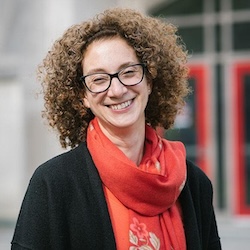
Jessica Cooperman joins the Department of Literatures, Cultures, and Languages as an associate professor, the Doris and Simon Konover Chair of Judaic Studies and Director of the Center for Judaic Studies and Contemporary Jewish Life. She previously served as the Director of Jewish Studies and Chair of Religion Studies at Muhlenberg College in Allentown, PA. She is the author of Making Judaism Safe for America: World War I and the Origins of Religious Pluralism, which received an honorable mention for the Saul Viener Book Prize in American Jewish History. Cooperman is also co-editor of the journal American Jewish History. Her current research project is history of Passover in the United States.
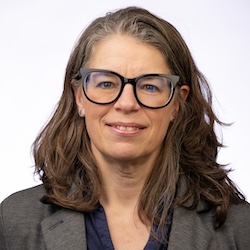
Angela Eikenberry joins the School of Public Policy as a professor and director. Eikenberry’s research focuses on the social, economic, and political roles of philanthropy and nonprofit organizations in democratic governance. She received the Council for Advancement and Support of Education’s John Grenzebach Research Award for Outstanding Research in Philanthropy and a Fulbright Scholar Award to conduct research in the UK. Eikenberry previously served as the president of the Association for Research on Nonprofit Organizations and Voluntary Action (ARNOVA) and was a fellow in the National Academy of Public Administration.
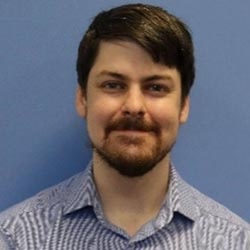 Kevin Feeney joins the Department of History as an assistant professor. Feeney earned his doctoral degree in Ancient History from Yale University. His research focuses on the Late Antique Roman Empire, particularly questions of political power and civic identity, and he is extremely interested in interdisciplinary approaches that seek to draw upon the insights of scholars working on other fields and in other periods.
Kevin Feeney joins the Department of History as an assistant professor. Feeney earned his doctoral degree in Ancient History from Yale University. His research focuses on the Late Antique Roman Empire, particularly questions of political power and civic identity, and he is extremely interested in interdisciplinary approaches that seek to draw upon the insights of scholars working on other fields and in other periods.
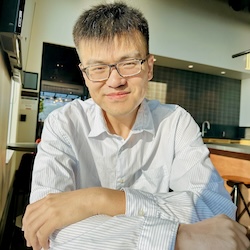 Xingche Guo joins the Department of Statistics as an assistant professor. Guo earned his doctoral degree in statistics from Iowa State University. He was a postdoctoral researcher in the Department of Biostatistics at Columbia University, where he focused on statistical machine learning in medical health.
Xingche Guo joins the Department of Statistics as an assistant professor. Guo earned his doctoral degree in statistics from Iowa State University. He was a postdoctoral researcher in the Department of Biostatistics at Columbia University, where he focused on statistical machine learning in medical health.
 Trevor Harris joins the Department of Statistics as an assistant professor. He earned his doctoral degree in statistics from the University of Illinois Urbana-Champaign. His research interests include deep learning, uncertainty quantification, spatial modeling, anomaly detection, and causal inference from observational data. His work primarily focuses on problems in climate science and epidemiology.
Trevor Harris joins the Department of Statistics as an assistant professor. He earned his doctoral degree in statistics from the University of Illinois Urbana-Champaign. His research interests include deep learning, uncertainty quantification, spatial modeling, anomaly detection, and causal inference from observational data. His work primarily focuses on problems in climate science and epidemiology.
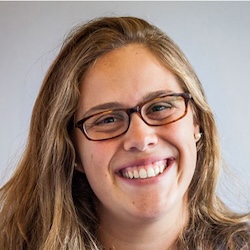 Elizabeth Jacobs joins the Department of Sociology as an assistant professor. Jacobs’ research is on how institutions – state, corporate, and academic – shape the economic, social, and spatial mobility of immigrants and refugees. She previously worked as a postdoctoral fellow in the Department of Digital and Computational Demography at the Max Planck Institute for Demographic Research in Rostock, Germany, completed a postdoctoral fellowship at Georgetown University’s Walsh School of Foreign Service and McCourt School of Public Policy, and collaborated with the United Nations High Commissioner on Refugees.
Elizabeth Jacobs joins the Department of Sociology as an assistant professor. Jacobs’ research is on how institutions – state, corporate, and academic – shape the economic, social, and spatial mobility of immigrants and refugees. She previously worked as a postdoctoral fellow in the Department of Digital and Computational Demography at the Max Planck Institute for Demographic Research in Rostock, Germany, completed a postdoctoral fellowship at Georgetown University’s Walsh School of Foreign Service and McCourt School of Public Policy, and collaborated with the United Nations High Commissioner on Refugees.
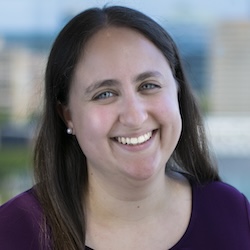 Arielle Keller joins the Department of Psychological Sciences as an assistant professor. Keller earned her bachelor’s and master’s degrees in neuroscience from Brandeis University, received her doctoral degree in neurosciences from Stanford University, and completed a post-doctoral fellowship at the University of Pennsylvania. Her research investigates how the human brain focuses attention on goal-relevant information amid constant distractions, with applications in understanding mental health and neurodevelopment. Her research uses multimodal human neuroimaging techniques, novel behavioral assessments, and computational models across large-scale datasets, and deeply phenotyped samples.
Arielle Keller joins the Department of Psychological Sciences as an assistant professor. Keller earned her bachelor’s and master’s degrees in neuroscience from Brandeis University, received her doctoral degree in neurosciences from Stanford University, and completed a post-doctoral fellowship at the University of Pennsylvania. Her research investigates how the human brain focuses attention on goal-relevant information amid constant distractions, with applications in understanding mental health and neurodevelopment. Her research uses multimodal human neuroimaging techniques, novel behavioral assessments, and computational models across large-scale datasets, and deeply phenotyped samples.
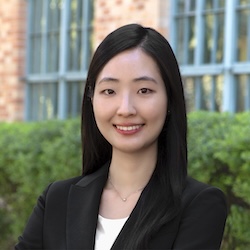 Bokyung Kim joins the Department of Economics as an assistant professor. Kim received her bachelor’s degree in economics from Yonsei University and her doctoral degree in economics from the University of Texas at Austin. Her research focuses on understanding the causes and consequences of the substance use disorder crisis, and the relationship between adolescent mental health and long-term outcomes. Previously, she was a postdoctoral fellow at the Stanford Institute for Economic Policy Research.
Bokyung Kim joins the Department of Economics as an assistant professor. Kim received her bachelor’s degree in economics from Yonsei University and her doctoral degree in economics from the University of Texas at Austin. Her research focuses on understanding the causes and consequences of the substance use disorder crisis, and the relationship between adolescent mental health and long-term outcomes. Previously, she was a postdoctoral fellow at the Stanford Institute for Economic Policy Research.
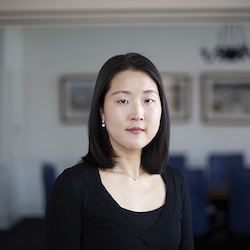
Na-Rae Kim joins the Department of English and Department of Social and Critical Inquiry as an assistant professor. Kim’s research and teaching focuses on 21st Century Asian American fiction, transnational Korean literature, representations of North Korea, and Critical Asian studies. Her book project, titled Re-Turning Korea: Navigating Homelands in Korean American Literature, explores 21st century Korean American literary imaginations of South Korea, North Korea, and Korean America.
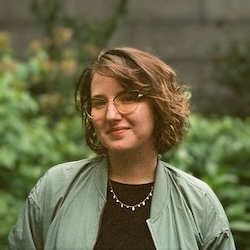 Aleksandra Kuznetsova joins the Department of Physics as an assistant professor. Kuznetsova received her doctoral degree in astronomy and astrophysics from the University of Michigan and her bachelor’s degrees in physics and astronomy and in geology from the University of Rochester. Her research focuses on understanding the formation conditions of planetary systems across the Milky Way galaxy, including the history of our solar system, using computational modeling. Prior to joining UConn, Kuznetsova was a NASA Sagan Postdoctoral Fellow at the American Museum of Natural History and a Flatiron Research Fellow at the Flatiron Institute’s Center for Computational Astrophysics.
Aleksandra Kuznetsova joins the Department of Physics as an assistant professor. Kuznetsova received her doctoral degree in astronomy and astrophysics from the University of Michigan and her bachelor’s degrees in physics and astronomy and in geology from the University of Rochester. Her research focuses on understanding the formation conditions of planetary systems across the Milky Way galaxy, including the history of our solar system, using computational modeling. Prior to joining UConn, Kuznetsova was a NASA Sagan Postdoctoral Fellow at the American Museum of Natural History and a Flatiron Research Fellow at the Flatiron Institute’s Center for Computational Astrophysics.
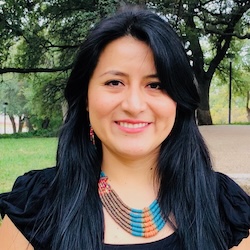 Alexandra Lamiña joins the Department of Geography, Sustainability, Community, and Urban Studies as an assistant professor. Lamiña, a Kitu-Kara Native woman from Nayón, Ecuador, received her doctoral degree in Latin American Studies from the University of Texas at Austin. She has worked on geographical assessments on the politics of territorial rights and autonomy of people of Indigenous and Afro-Latin descent in Bolivia, Colombia, and Brazil. Her research primarily focuses on Amazonian urban geographies, learning from Indigenous epistemological traditions and drawing on feminist, Indigenous, and decolonizing perspectives in geography and urban planning.
Alexandra Lamiña joins the Department of Geography, Sustainability, Community, and Urban Studies as an assistant professor. Lamiña, a Kitu-Kara Native woman from Nayón, Ecuador, received her doctoral degree in Latin American Studies from the University of Texas at Austin. She has worked on geographical assessments on the politics of territorial rights and autonomy of people of Indigenous and Afro-Latin descent in Bolivia, Colombia, and Brazil. Her research primarily focuses on Amazonian urban geographies, learning from Indigenous epistemological traditions and drawing on feminist, Indigenous, and decolonizing perspectives in geography and urban planning.
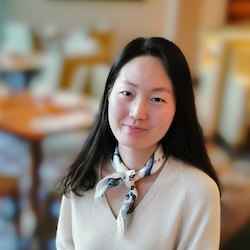 Wenrui Li joins the Department of Statistics as an assistant professor. Li obtained her bachelor’s degree in statistics from Shandong University, her master’s degree in statistics from the University of Washington, and her doctoral degree in statistics from Boston University. She was a postdoctoral researcher in the Department of Biostatistics, Epidemiology and Informatics at the University of Pennsylvania. Her research interests include high-dimensional data analysis, statistics for network data, causal inference under interference, and statistical methods for infectious disease transmission and surveillance.
Wenrui Li joins the Department of Statistics as an assistant professor. Li obtained her bachelor’s degree in statistics from Shandong University, her master’s degree in statistics from the University of Washington, and her doctoral degree in statistics from Boston University. She was a postdoctoral researcher in the Department of Biostatistics, Epidemiology and Informatics at the University of Pennsylvania. Her research interests include high-dimensional data analysis, statistics for network data, causal inference under interference, and statistical methods for infectious disease transmission and surveillance.
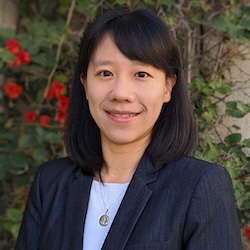 Ting-An Lin joins the Department of Philosophy as an assistant professor. She received her doctoral degree in philosophy from Rutgers University, New Brunswick, where she also received a graduate certificate in women’s and gender studies. She previously worked as an Interdisciplinary Ethics Postdoctoral Fellow at Stanford University. Lin specializes in ethics (including AI and tech ethics), social and political philosophy, and feminist philosophy. Her research focuses on the unfair constraints that social structures impose on different groups of people, referred to as structural injustice. Her research can be found in leading philosophy journals and interdisciplinary venues, including Feminist Philosophy Quarterly, Hypatia, and Philosophy and Technology.
Ting-An Lin joins the Department of Philosophy as an assistant professor. She received her doctoral degree in philosophy from Rutgers University, New Brunswick, where she also received a graduate certificate in women’s and gender studies. She previously worked as an Interdisciplinary Ethics Postdoctoral Fellow at Stanford University. Lin specializes in ethics (including AI and tech ethics), social and political philosophy, and feminist philosophy. Her research focuses on the unfair constraints that social structures impose on different groups of people, referred to as structural injustice. Her research can be found in leading philosophy journals and interdisciplinary venues, including Feminist Philosophy Quarterly, Hypatia, and Philosophy and Technology.
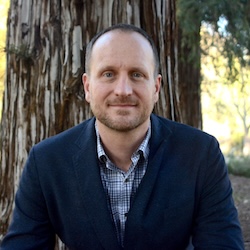 Dylan Murray joins the Department of Molecular and Cell Biology as an assistant professor. Murray earned his doctorate degree in molecular biophysics from Florida State University and worked as a postdoctoral fellow at the National Institutes of Health. Murray’s research interest focuses on how microscopic molecules like proteins and DNA in humans and plants collectively produce much larger phenomena required to maintain life. His work has broad applications from fighting neurodegenerative disease and cancer to engineering plants to produce petrochemicals or to survive drought.
Dylan Murray joins the Department of Molecular and Cell Biology as an assistant professor. Murray earned his doctorate degree in molecular biophysics from Florida State University and worked as a postdoctoral fellow at the National Institutes of Health. Murray’s research interest focuses on how microscopic molecules like proteins and DNA in humans and plants collectively produce much larger phenomena required to maintain life. His work has broad applications from fighting neurodegenerative disease and cancer to engineering plants to produce petrochemicals or to survive drought.
 Allen Peters joins the Department of Economics as an assistant professor. Peters received his doctoral degree from the University of British Columbia, where he focused on maritime shipping, using empirical modeling to quantify how policies affect carbon dioxide emissions through the operation, construction, and retirement of ships. He also applies statistical tools such as machine learning to better understand firms’ responses to policies and the net impact on emissions. Prior to studying economics, Allen was a micro-technology engineer working in the Swiss watch industry.
Allen Peters joins the Department of Economics as an assistant professor. Peters received his doctoral degree from the University of British Columbia, where he focused on maritime shipping, using empirical modeling to quantify how policies affect carbon dioxide emissions through the operation, construction, and retirement of ships. He also applies statistical tools such as machine learning to better understand firms’ responses to policies and the net impact on emissions. Prior to studying economics, Allen was a micro-technology engineer working in the Swiss watch industry.
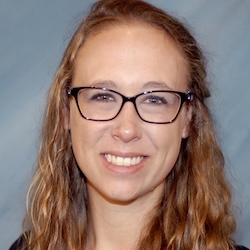 Kristen Ramsey joins the Department of Molecular and Cell Biology as an assistant professor. She received her bachelor’s degree in biochemistry from Florida State University as a Goldwater Scholar and her doctoral degree at the University of California, San Diego in the Department of Chemistry and Biochemistry. Ramsey previously served as an NIH Postdoctoral Fellow in the Department of Biophysics at Johns Hopkins University. Her research is focused on integrating molecular biophysical approaches with cell-based functional assays to further understand the fundamental biology of pathogen-sensing and signaling by innate immune RNA sensors from humans, birds, and scavenger species.
Kristen Ramsey joins the Department of Molecular and Cell Biology as an assistant professor. She received her bachelor’s degree in biochemistry from Florida State University as a Goldwater Scholar and her doctoral degree at the University of California, San Diego in the Department of Chemistry and Biochemistry. Ramsey previously served as an NIH Postdoctoral Fellow in the Department of Biophysics at Johns Hopkins University. Her research is focused on integrating molecular biophysical approaches with cell-based functional assays to further understand the fundamental biology of pathogen-sensing and signaling by innate immune RNA sensors from humans, birds, and scavenger species.
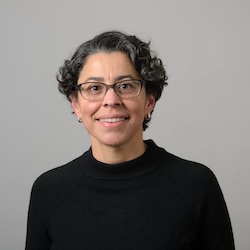 Julissa Rojas-Sandoval joins the Department of Geography, Sustainability, Community and Urban Studies and The Institute of the Environment as an assistant professor. Rojas-Sandoval received her doctoral degree from the University of Puerto Rico. She also worked as a postdoctoral Fellow at the Smithsonian Institution/National Museum of Natural History in Washington, DC. Her research interests focus on plant ecology and tropical forests, specifically around the context of biological invasions, biodiversity conservation, and human-caused environmental changes, using approaches that span population dynamics, machine learning, data-driven simulations, theoretical modeling, biogeography, and community ecology.
Julissa Rojas-Sandoval joins the Department of Geography, Sustainability, Community and Urban Studies and The Institute of the Environment as an assistant professor. Rojas-Sandoval received her doctoral degree from the University of Puerto Rico. She also worked as a postdoctoral Fellow at the Smithsonian Institution/National Museum of Natural History in Washington, DC. Her research interests focus on plant ecology and tropical forests, specifically around the context of biological invasions, biodiversity conservation, and human-caused environmental changes, using approaches that span population dynamics, machine learning, data-driven simulations, theoretical modeling, biogeography, and community ecology.
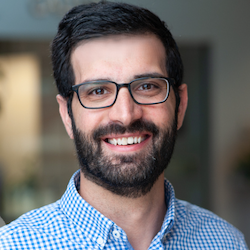 Michael Rubin joins the Department of Political Science as an assistant professor. Rubin’s research explores the causes, conduct, and consequences of civil wars and political violence, to inform policy solutions to reduce the human suffering they generate. His work draws on both global comparisons across conflicts as well as in-depth analysis of key cases, including: the communist insurgency in the Philippines, the 1948 War in Mandate Palestine, Syria’s civil war, and the anti-Apartheid resistance in South Africa.
Michael Rubin joins the Department of Political Science as an assistant professor. Rubin’s research explores the causes, conduct, and consequences of civil wars and political violence, to inform policy solutions to reduce the human suffering they generate. His work draws on both global comparisons across conflicts as well as in-depth analysis of key cases, including: the communist insurgency in the Philippines, the 1948 War in Mandate Palestine, Syria’s civil war, and the anti-Apartheid resistance in South Africa.
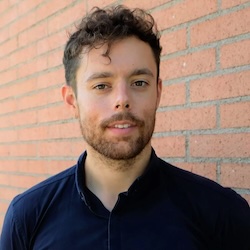 Brady Ryan joins the Department of Literatures, Cultures, and Languages as an assistant professor. Ryan received his doctoral degree from the University of California Los Angeles. His research focuses on modern Arabic literature, specifically the inheritance and development of literary symbols, genres, and modes of critique across historical periods and generations. He is currently working on a book about post-Arab Spring trajectories of the historical novel. His scholarship and literary translations have been published in Middle Eastern Literatures, Journal of Middle East Women’s Studies, and Words Without Borders.
Brady Ryan joins the Department of Literatures, Cultures, and Languages as an assistant professor. Ryan received his doctoral degree from the University of California Los Angeles. His research focuses on modern Arabic literature, specifically the inheritance and development of literary symbols, genres, and modes of critique across historical periods and generations. He is currently working on a book about post-Arab Spring trajectories of the historical novel. His scholarship and literary translations have been published in Middle Eastern Literatures, Journal of Middle East Women’s Studies, and Words Without Borders.
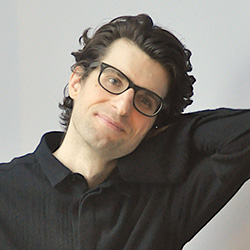 Julian Schloeder joins the Department of Philosophy as an assistant professor. Julian received a doctoral degree from the Institute for Logic, Language and Computation at the University of Amsterdam. Their research focuses on logic, language, mind, and metaethics.
Julian Schloeder joins the Department of Philosophy as an assistant professor. Julian received a doctoral degree from the Institute for Logic, Language and Computation at the University of Amsterdam. Their research focuses on logic, language, mind, and metaethics.
 Simon Shachter joins the Department of Sociology as an assistant professor. Shachter earned his bachelor’s degree in computer science from Stanford University and his master’s and doctoral degrees in sociology from the University of Chicago. His research analyzes how the interrelationships between civil society and the state perpetuate and/or alleviate inequality. He is currently working on a project researching the interpenetration of immigrant organizations and urban politics during the 19th-century development of the U.S.’s West Coast.
Simon Shachter joins the Department of Sociology as an assistant professor. Shachter earned his bachelor’s degree in computer science from Stanford University and his master’s and doctoral degrees in sociology from the University of Chicago. His research analyzes how the interrelationships between civil society and the state perpetuate and/or alleviate inequality. He is currently working on a project researching the interpenetration of immigrant organizations and urban politics during the 19th-century development of the U.S.’s West Coast.
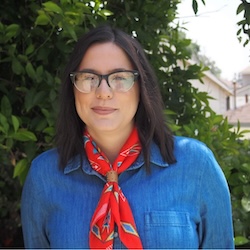 Kali Simmons joins the Department of English and the Department of Social and Critical Inquiry as an assistant professor. Simmons earned her doctoral degree in English from the University of California Riverside. An Indigenous feminist scholar of Oglala Lakota descent, her scholarly work examines depictions of North American Native peoples in film and literature with an emphasis on the genres of horror and speculative fiction. Her research has appeared in the Journal of Cinema and Media Studies, Science Fiction Film and Television, American Indian Quarterly, The Los Angeles Review of Books. and on Vulture.com.
Kali Simmons joins the Department of English and the Department of Social and Critical Inquiry as an assistant professor. Simmons earned her doctoral degree in English from the University of California Riverside. An Indigenous feminist scholar of Oglala Lakota descent, her scholarly work examines depictions of North American Native peoples in film and literature with an emphasis on the genres of horror and speculative fiction. Her research has appeared in the Journal of Cinema and Media Studies, Science Fiction Film and Television, American Indian Quarterly, The Los Angeles Review of Books. and on Vulture.com.
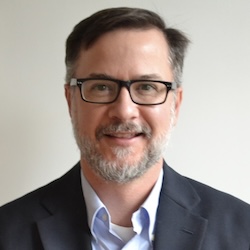 Brad Tuttle joins the Department of Journalism as an assistant professor. Tuttle has over 20 years of experience as a journalist working mostly as writer and editor for magazines and news websites. From 2014 to 2024, he was a senior writer and senior editor at Money. He has been a frequent contributor to TIME and Time.com and a member of the editorial staff at Budget Travel and Wondertime magazines. He’s the author of How Newark Became Newark: The Rise, Fall, and Rebirth of an American City (2009) and The Ellis Island Collection: Artifacts from the Immigrant Experience (2004).
Brad Tuttle joins the Department of Journalism as an assistant professor. Tuttle has over 20 years of experience as a journalist working mostly as writer and editor for magazines and news websites. From 2014 to 2024, he was a senior writer and senior editor at Money. He has been a frequent contributor to TIME and Time.com and a member of the editorial staff at Budget Travel and Wondertime magazines. He’s the author of How Newark Became Newark: The Rise, Fall, and Rebirth of an American City (2009) and The Ellis Island Collection: Artifacts from the Immigrant Experience (2004).
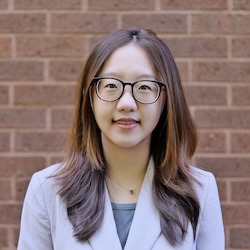 Lijing Wang joins the Department of Earth Sciences as an assistant professor. She received her doctoral degree in geological sciences from Stanford University, with a minor in computer science, and worked as a postdoctoral fellow at Lawrence Berkeley National Laboratory. Her research integrates advanced hydrologic modeling with multiscale datasets, including geophysical surveys and in-situ hydrologic measurements. In 2023, she published the textbook, “Data Science for the Geosciences.”
Lijing Wang joins the Department of Earth Sciences as an assistant professor. She received her doctoral degree in geological sciences from Stanford University, with a minor in computer science, and worked as a postdoctoral fellow at Lawrence Berkeley National Laboratory. Her research integrates advanced hydrologic modeling with multiscale datasets, including geophysical surveys and in-situ hydrologic measurements. In 2023, she published the textbook, “Data Science for the Geosciences.”
 Seth Warner joins the Department of Political Science as an assistant professor. Warner received his doctorate from Pennsylvania State University. His research focuses on partisan polarization in the United States. His current project evaluates differences in polarization across U.S. cities and towns, and how highly polarized environments affect the people who live in them.
Seth Warner joins the Department of Political Science as an assistant professor. Warner received his doctorate from Pennsylvania State University. His research focuses on partisan polarization in the United States. His current project evaluates differences in polarization across U.S. cities and towns, and how highly polarized environments affect the people who live in them.
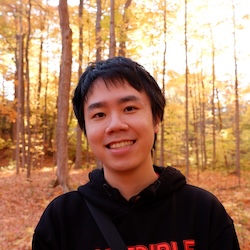
Hanlin Zhou joins the Department of Geography, Sustainability, Community, and Urban Studies as a tenure-track assistant professor. He earned his doctoral degree in geography from the University of Toronto. His academic interests lie at the dynamic intersection of artificial intelligence with geospatial data and technology, focusing on understanding human activities such as mobility, health behaviors, crime prevention, as well as natural and human-induced environmental risk.
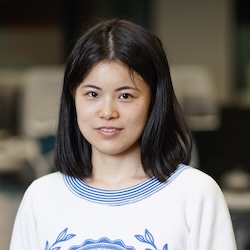
Ying Zhou joins the Department of Statistics as an assistant professor. Zhou received a B.S. in mathematics and a B.A. in economics from Wuhan University, a master’s degree in mathematics of finance from Columbia University, and a doctoral degree in statistics from the University of Toronto. She was a postdoctoral researcher in the Center for Causal Inference at the University of Pennsylvania. Her research interests include causal inference, semiparametric theory, and interdisciplinary data science.

